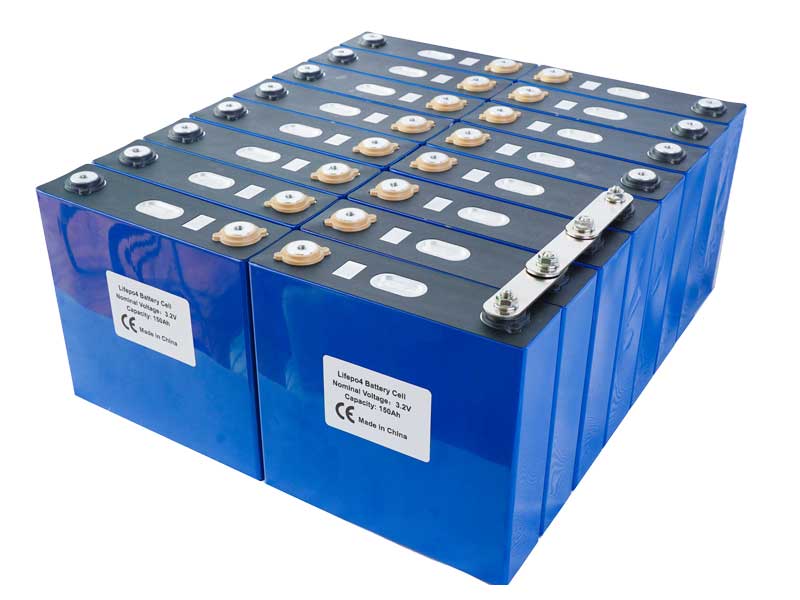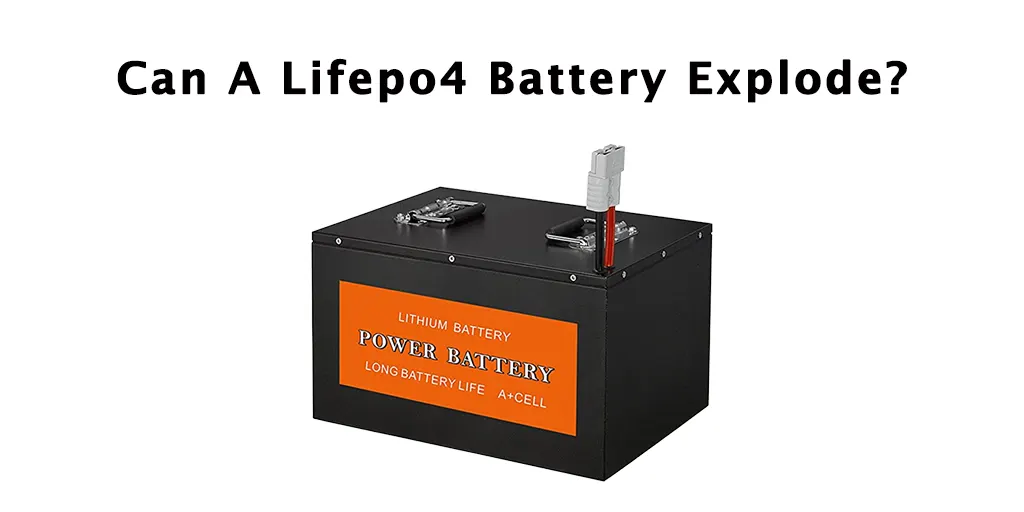No. LiFePo4 batteries do not require any ventilation as a crucial requirement since it doesn’t generate any dangerous and toxic gases.
LiFePo4 batteries are considered to be the safest battery on the market right now, and you’ll get 2000 to 5000 cycles from this battery. With proper care that’s 10 years. But this maintenance does not require venting.
Why Do Batteries Need Venting?
Some batteries release toxic and dangerous gas like hydrogen, which are very corrosive, unhealthy, and explosive. As an example, if I consider lead acid batteries, they tend to generate an explosive mixture of hydrogen and oxygen gas during charging.
And overcharging this battery can give off hydrogen sulfide (H2S), a very poisonous and flammable gas. So, if you do not create proper ventilation for these batteries, there is a high chance that they will build up and create a dangerous explosion.

On top of that, these toxic gas are very contaminating and can make the air unhealthy for inhaling in a confined space. Inhaling the contaminated air will cause breathing and other health issues.
That’s why you need proper venting so these gases cannot build up and create an unhealthy environment.
Since LiFePo4 batteries do not produce any toxic hydrogen or hydrogen sulfide gas, you need not vent them. It is applicable for batteries like lead-acid and sealed lead acid, which have a high level of thermal runaway.
Are LiFePo4 Batteries Safe Indoors?
LiFePo4 battery is currently the safest battery on the market. Most importantly, these batteries are safe indoors as well. We know that the LiFePo4 battery does not release ever-dangerous hydrogen gas. As a result, it will not make your indoor environment air toxic.
According to a study by Solar Energy Research Institute of Singapore Nation University, LiFePo4 batteries are safe to store inside your house, RV, or any indoors.
All you need to do is follow the general LiFePO4 store guidelines set by the manufacturer.

So, you won’t face any health issues by keeping this battery indoors. Most importantly, an improved integrated battery management system and the optimization of the stability of the internal structure make the LiFePo4 battery safer, even indoors.
Do LiFePo4 Batteries Get Hot?
No, LiFePo4 batteries do not get hot in general. That’s because this battery system does not generate any heat. A study on “Analysis of the thermal behavior of a LiFePO4 battery cell” by V. Christian and N. Marian-Ciprian shows that LiFePo4 batteries do not generate any heat during charging and discharging.
As a result, you won’t need any spacing between the cells. It won’t help cool this battery. However, you have to keep them in a cool place because the temperature can impact the overall lifespan of the cells.
So keeping them at a cool and comfortable temperature will prolong their life.
Can A Lifepo4 Battery Explode?

As a general rule, LiFePo4 batteries do not explode or even ignite. Although they are safer in regular use, batteries always have an inherited chance of short-circuiting in some extreme cases. It’s entirely because of the material selection, ration, and usage.
In a normal circuit, electrons flow between electrodes through an external circuit. But in a short circuit, electrons flow directly between electrodes, bypassing the intervening load, and generating excessive heat.
LiFePo4 battery material is thermodynamical. It has the highest level of thermally and structurally stable cathode materials, proven by actual safety performance tests.
So, the chances of LiFePo4 batteries exploding are very narrow. However, I’m not ruling out the possibility completely.
A loose terminal connection can cause a spark or ignite the battery. So, make sure you purchase from a reliable manufacturer and use them in the proper way.
Are Lifepo4 Batteries A Fire Risk?
No. Lithium Iron Phosphate batteries do not have any fire risk provided that you are using them properly. But in a case of abuse, the phosphate-based cathode material will not burn as they are not prone to thermal runaway.
LiFePo4 batteries are more stable under overcharge or short circuit conditions, compared to lithium-ion batteries. They are capable of tolerating high temperatures without decomposing. So, even if you mishandle these batteries, the chances of catching fire are very low.
What Safety Features Do LiFePo4 Batteries Have?
The mention of safety features in LiFePo4 batteries will further complement my claim that this is a safe battery, even for high temperatures. They come with the best safety features a battery has.
Here are some of the safety features of LiFePo4 batteries:
- Explosion-Proof Stainless Steel, Have
- A Built-In Safety Fuse,
- A High-Pressure Safety Vent,
- Over-Temperature Protection
- A Flame Retardant Additive In Electrolyte
- Strong Spot-Welded Connections
Here are some safety tastes that LiFePo4 batteries have passed with flying colors.
| Test | Reason To Conduct | Result |
| Overcharging | To check the state of the battery after overcharging | Does not create any fire |
| Short Circuit | To check the effect of a short circuit | Does not ignite or explode |
| Mechanical Damage | To check the mechanical damage reaction | Does not create fire or explode |
| Ignition Test | Ignite the battery to check its reaction | Does not explode |

Eng. Matthew Joseph Nandirio is the Founder of walkingsolar.
After graduating from the University of Houston in 2002, matt started working as a Solar Electrical Engineer for several multi-national solar energy companies.
He has a wide range of experiences including solar system requirement analysis, planning, maintaining, debugging and even solar device development through research.
He now shares his 20 years of expertise through his articles on the walkingsolar website.
Further, he is also the author of two books on Solar Technology, “Solar Power for Villages” and “DIY Solar System for Dummies”.
